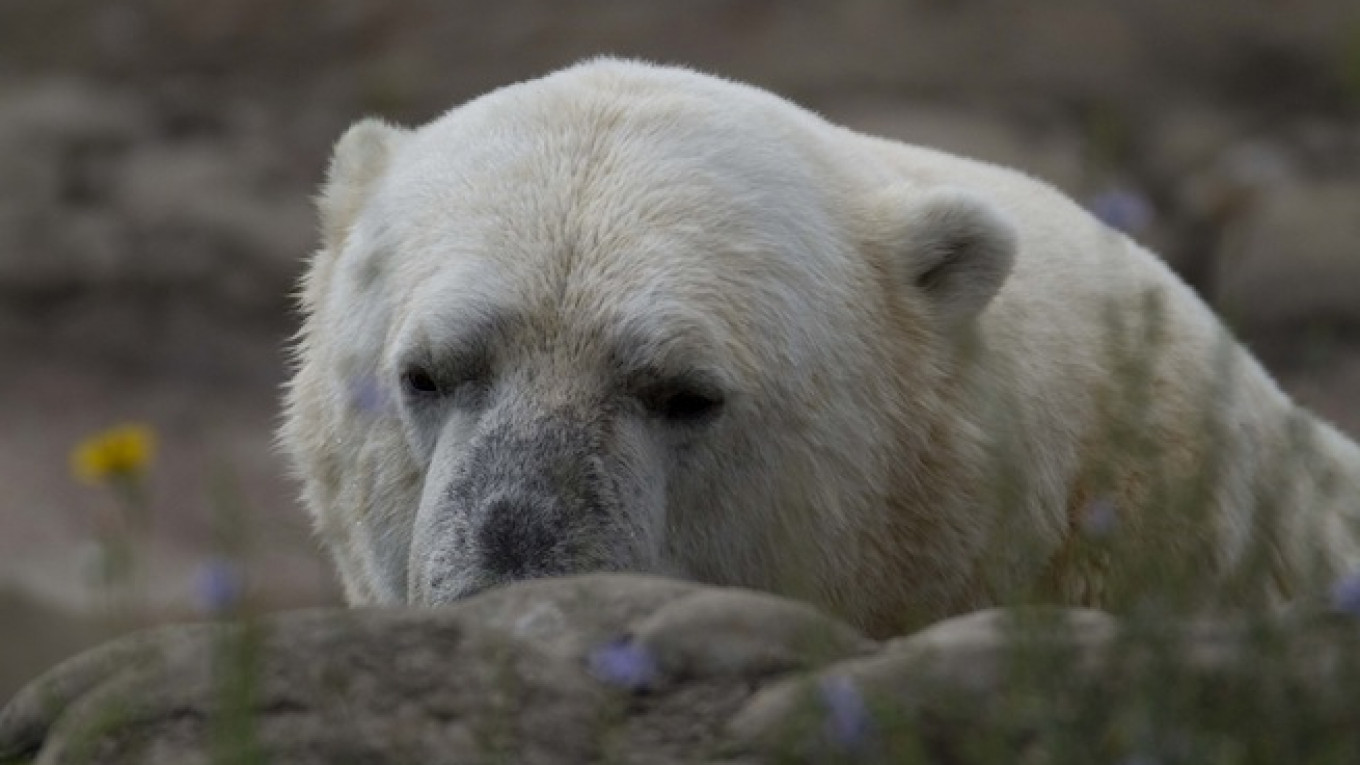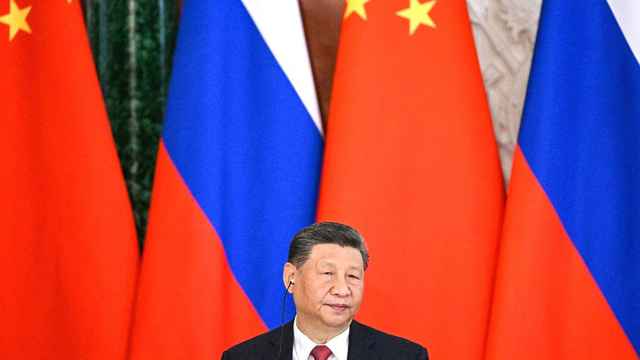The melting of polar ice caps has reduced the population of polar bears on Russia's remote northern islands, with the predators being forced to subsist on sea kelp and small birds because their natural prey have fled, a researcher said.
The waters around the Franz Josef Land archipelago changed from a continuous ice sheet 100 years ago to persistent stretches of ice 20 years ago, but "in recent years, the aquatic area completely clears of ice during summer months, with only icebergs to be seen," said Roman Yershov, head of the Russian Arctic nature reserve, Interfax reported Sunday.
Seals, the polar bears' main prey, have retreated together with the ice, disrupting the animals' natural habits and diet, he said.
The polar bears now have to stay on the shore, feeding on small birds and their eggs, and on sea kelp, he said.
Franz Josef Land, which is uninhabited by humans, is also home to walruses and large colonies of birds, but concerns that climate change may disrupt the archipelago's ecosystem have been raised with increasing frequency in recent years.
Read more:
A Message from The Moscow Times:
Dear readers,
We are facing unprecedented challenges. Russia's Prosecutor General's Office has designated The Moscow Times as an "undesirable" organization, criminalizing our work and putting our staff at risk of prosecution. This follows our earlier unjust labeling as a "foreign agent."
These actions are direct attempts to silence independent journalism in Russia. The authorities claim our work "discredits the decisions of the Russian leadership." We see things differently: we strive to provide accurate, unbiased reporting on Russia.
We, the journalists of The Moscow Times, refuse to be silenced. But to continue our work, we need your help.
Your support, no matter how small, makes a world of difference. If you can, please support us monthly starting from just $2. It's quick to set up, and every contribution makes a significant impact.
By supporting The Moscow Times, you're defending open, independent journalism in the face of repression. Thank you for standing with us.
Remind me later.






